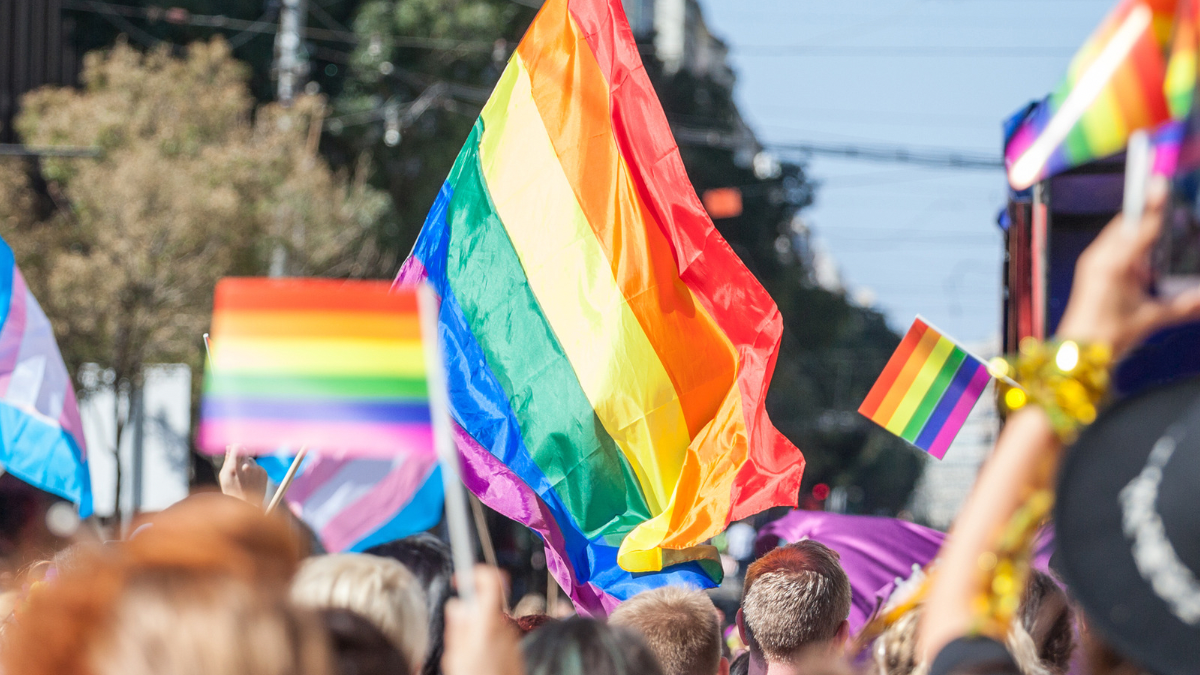
LLMs – Demystifying the World of (Voluntary) Further Legal Study
May 9, 2024
Supporting Single Parents at the Bar
May 12, 2024By Oluwaseun Fatudimu.
Reading time: four minutes
For Trans+ History Week (6-11 May), Oluwaseun Fatudimu has written an article on the challenges LGBTQ+ lawyers face in the legal profession, and how stakeholders can support them effectively.
The Concept of LQBTQ+
LGBTQ+ is an acronym used to describe a person’s sexual orientation as lesbian, gay, bisexual, transgender, queer or questioning, with the ‘+’ recognising non-straight, non-cisgender persons. LGBTQ+ as a social movement can be roughly traced to the 20th century, assisted by the social climate of feminism and anthropologies of new identities. Although initially faced with great resistance, it has grown to be widely accepted by a considerable number of individuals, organisations and governments.
For instance, in 1986, the European Court of Human Rights (ECHR) dismissed the case of Mark Rees, requesting for recognition of his rights as a trans man under the UK law. However, in 2001, the UK lifted the ban on gay and bi people serving in the armed forces, and subsequently, legalised same-sex marriage in 2014—showing the growing acceptance of LGBTQ+s in society.
More specifically, within the legal profession, heightened awareness of diversity and inclusion has led to increased emphasis on creating inclusive environments in law firms and barristers’ chambers. This shift is driven by clients’ demands for diverse and inclusive representation. This included adopting a recruitment process that recognises the rights of lesbian, gay, bisexual, transgender and queer (‘LQBTQ+’). Most law firms now have their own LGBTQ+ networks, including Clifford Chance’s Arcus, Slaughter and May’s PRISM, amongst others.
Additionally, in 2023, the SRA reported that 2.8% UK lawyers identify as gay, lesbian or bi-sexual compared to 1.8% of the UK population—revealing that the legal profession is more welcoming than ever before. Notwithstanding this development, the effective recognition and advancement of LGBTQ+ rights in the legal profession remain paltry, being affected by certain inherent challenges.
Against this backdrop, therefore, this article critically analyses the challenges affecting LGBTQ+ legal professionals in exercising their rights. It also offers bespoke recommendations on how to solve these problems and achieve a more inclusive profession, where people’s sexualities do not define the way they are perceived.
Challenges
Despite the growth in the general acceptance of LGBTQ+, lawyers who fall within this category still encounter several challenges in their workplace.
First, lack of LGBTQ+ Visibility and Mentorship is a crucial challenge affecting LGBTQ+ lawyers, as reported by The Law Society’s most recent survey. The survey showed that 42% of gay, 55% of lesbian and 78% of bisexual lawyers cited this issue as a problem, reiterating the limited numbers of LGBTQ+ lawyers in leadership positions in the legal profession. The effect of this is simple: lack of role models and mentors to young LGBTQ+ individuals aspiring to join the profession, thereby affecting their personal and professional growth.
Similarly, discrimination is another problem affecting LGBTQ+ lawyers. They encounter unconscious bias and prejudice about their capability, resulting in microagressions and lack of career progress. The Law Society’s report revealed that 37% of respondents had experienced homophobia, biphobia or transphobia in their workplace. Also, the InterLaw Diversity Forum study shows gay men earned half that of their male counterparts, demonstrating the discrimination these lawyers face.
Moreover, according to a CIPD report, LGBTQ+ people generally experience greater difficulties at workplace as they navigate a delicate balance between ‘coming out’ and delivering excellent services, resulting in more job dissatisfaction and lower psychological safety. When we look specifically at the legal profession, it becomes evident that LGBTQ+ lawyers often struggle more with work-life balance compared to their heterosexual counterparts. This is due to the high-pressure and demanding nature of the profession.
Recommendations
Achieving an inclusive legal profession requires collaboration from all stakeholders, including lawyers, law firms and organisations. As allies, lawyers should actively use their voices and positions to advocate and support LGBTQ+ colleagues and also educate themselves to understand the realities of this group.
Read this article to find out how lawyers can be good allies: https://thestudentlawyer.com/2023/12/05/how-lawyers-can-act-as-allies-during-pride-month/
Similarly, mentoring programmes should be provided to LGBTQ+ law students and junior lawyers, significantly contributing to the future of the profession. Also, lawyers should encourage the culture of calling out individuals who discriminate against their LGBTQ+ colleagues, as this will raise more consciousness amongst people against such act.
Law Firms
Apart from formulating inclusive policies, active steps should be taken to implement and enforce them. For example, bespoke inclusion trainings should be provided to all staff, as this will result in a safer and welcoming work environment for LGBTQ+ lawyers. Anonymous reporting of bias incidents must also be encouraged and any reported incidents must be effectively resolved. This will increase LGBTQ+ lawyers’ confidence, making the legal profession feel more welcoming.
Legal Organisations
Legal organisations and societies can contribute by developing and promoting LGBTQ+ initiatives. The Law Society’s LGBTQ Solicitors Network is a good example, as it has recorded great strides in promoting inclusion the legal profession since its establishment. Through their activities, they can encourage the legal community to adopt inclusive practices and measures as well as celebrate their LGBTQ+ achievements.
Overall
Promoting LGBTQ+ in the legal profession has enormous benefits for not just the individual and law firms but also the legal profession in its entirety. Thus, making the legal profession truly inclusive is not just the right thing to do; it is a crucial step towards building a just legal system for all.





